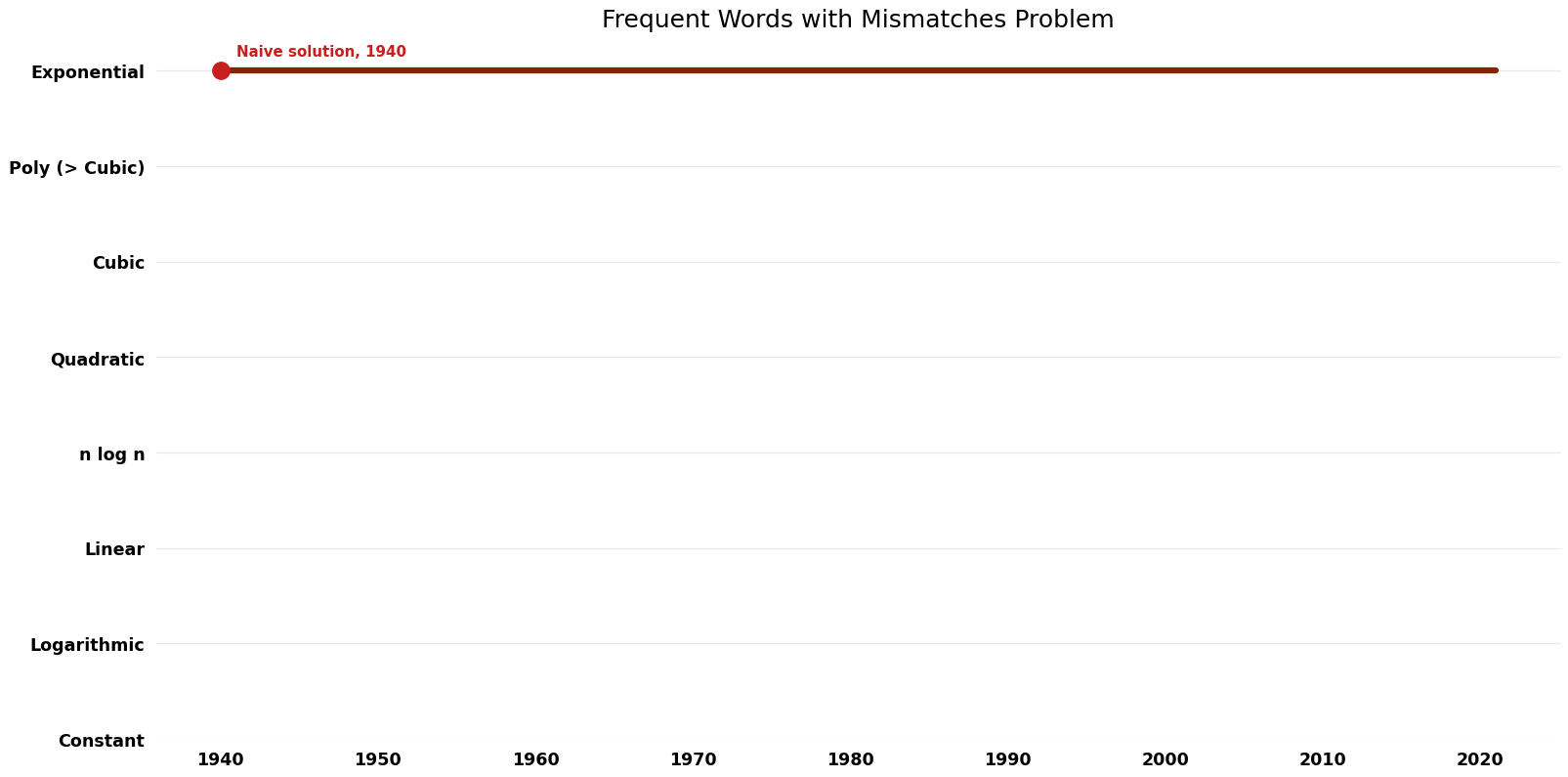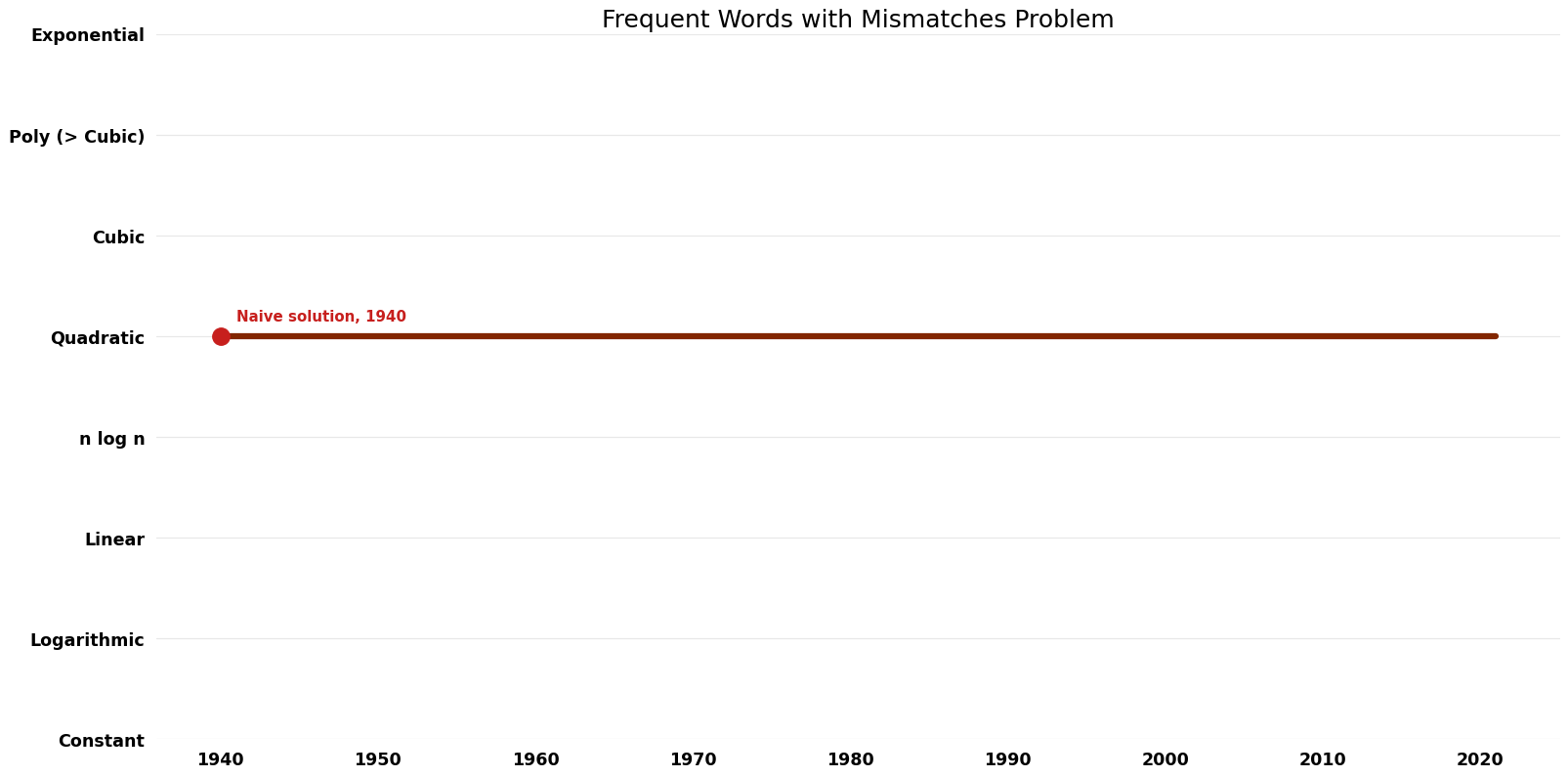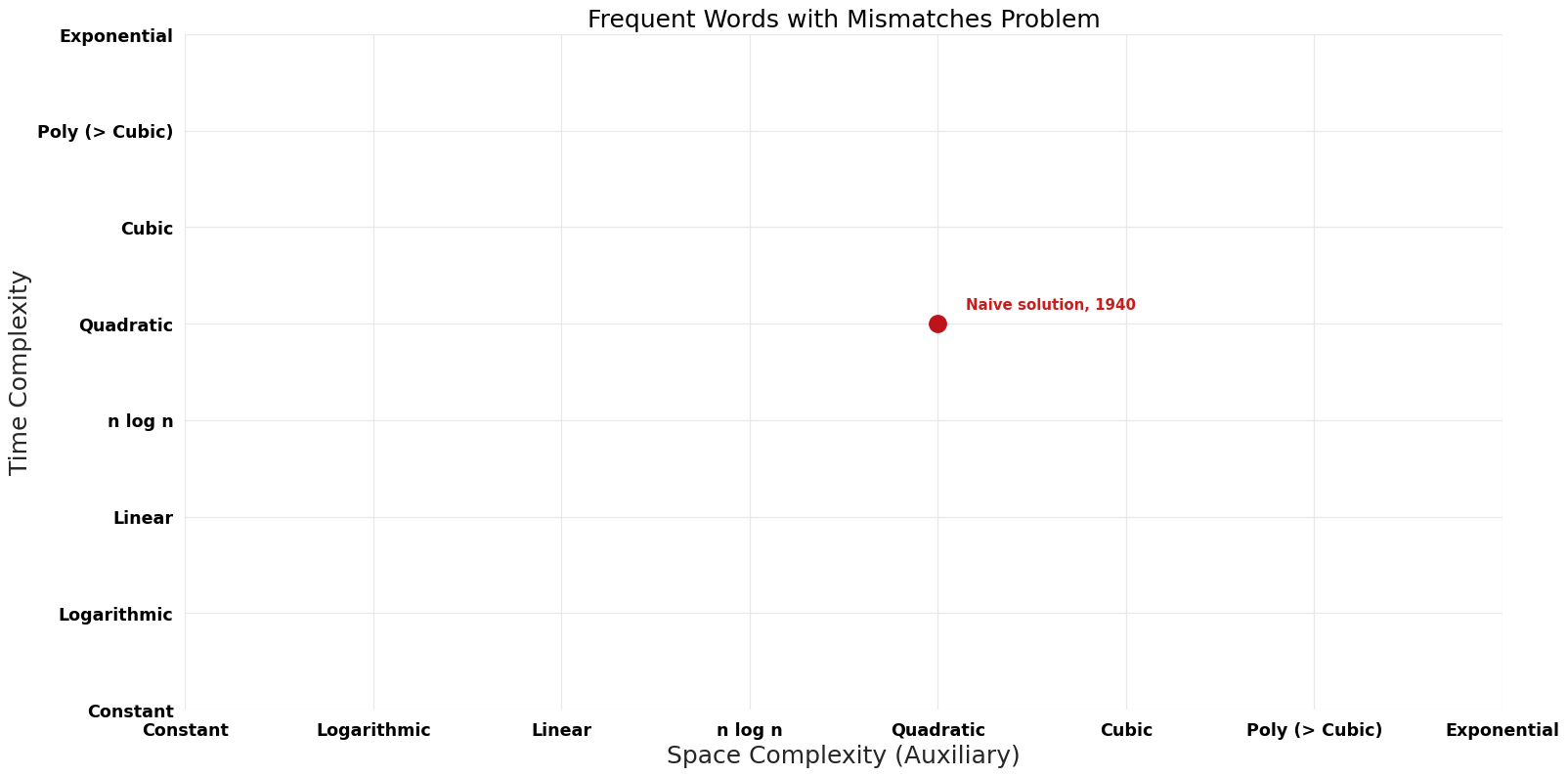Frequent Words with Mismatches Problem: Difference between revisions
Jump to navigation
Jump to search
(Created page with "{{DISPLAYTITLE:Frequent Words with Mismatches Problem (Frequent Words with Mismatches Problem)}} == Description == Given two strings, determine the most frequent substring with at most $k$ mismatches, where mismatches are not counted towards the length of the substring. == Parameters == <pre>n: length of string k: length of words d: number of allowed mismatches sigma: size of alphabet</pre> == Table of Algorithms == {| class="wikitable sortable" style="text-alig...") |
No edit summary |
||
| Line 6: | Line 6: | ||
== Parameters == | == Parameters == | ||
n: length of string | |||
k: length of words | k: length of words | ||
d: number of allowed mismatches | d: number of allowed mismatches | ||
sigma: size of alphabet | |||
sigma: size of alphabet | |||
== Table of Algorithms == | == Table of Algorithms == | ||
Revision as of 13:03, 15 February 2023
Description
Given two strings, determine the most frequent substring with at most $k$ mismatches, where mismatches are not counted towards the length of the substring.
Parameters
n: length of string
k: length of words
d: number of allowed mismatches
sigma: size of alphabet
Table of Algorithms
| Name | Year | Time | Space | Approximation Factor | Model | Reference |
|---|---|---|---|---|---|---|
| Naive solution | 1940 | $O(n*f_{bin}(sigma-{1}, k, d)$) where f_{bin}(x, y, z) = sum_{i=0}^z C(y, i)*x^i | $O(max(n*f_{bin}(sigma-{1}, k, d)$, sigma^k)) auxiliary where f_{bin}(x, y, z) = sum_{i=0}^z C(y, i)*x^i | Exact | Deterministic |


